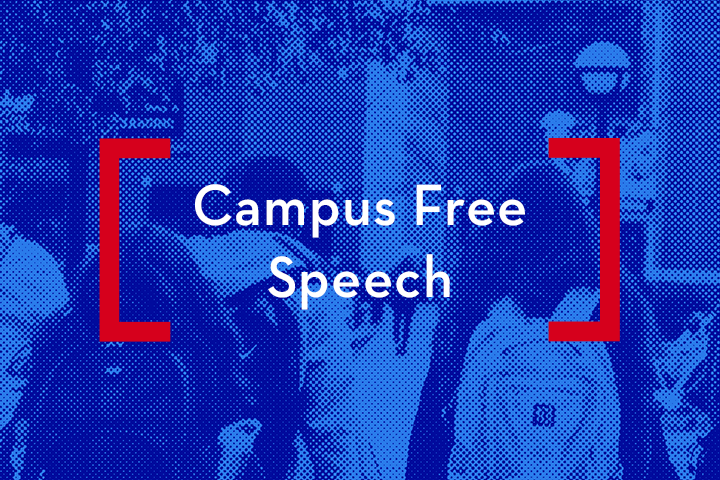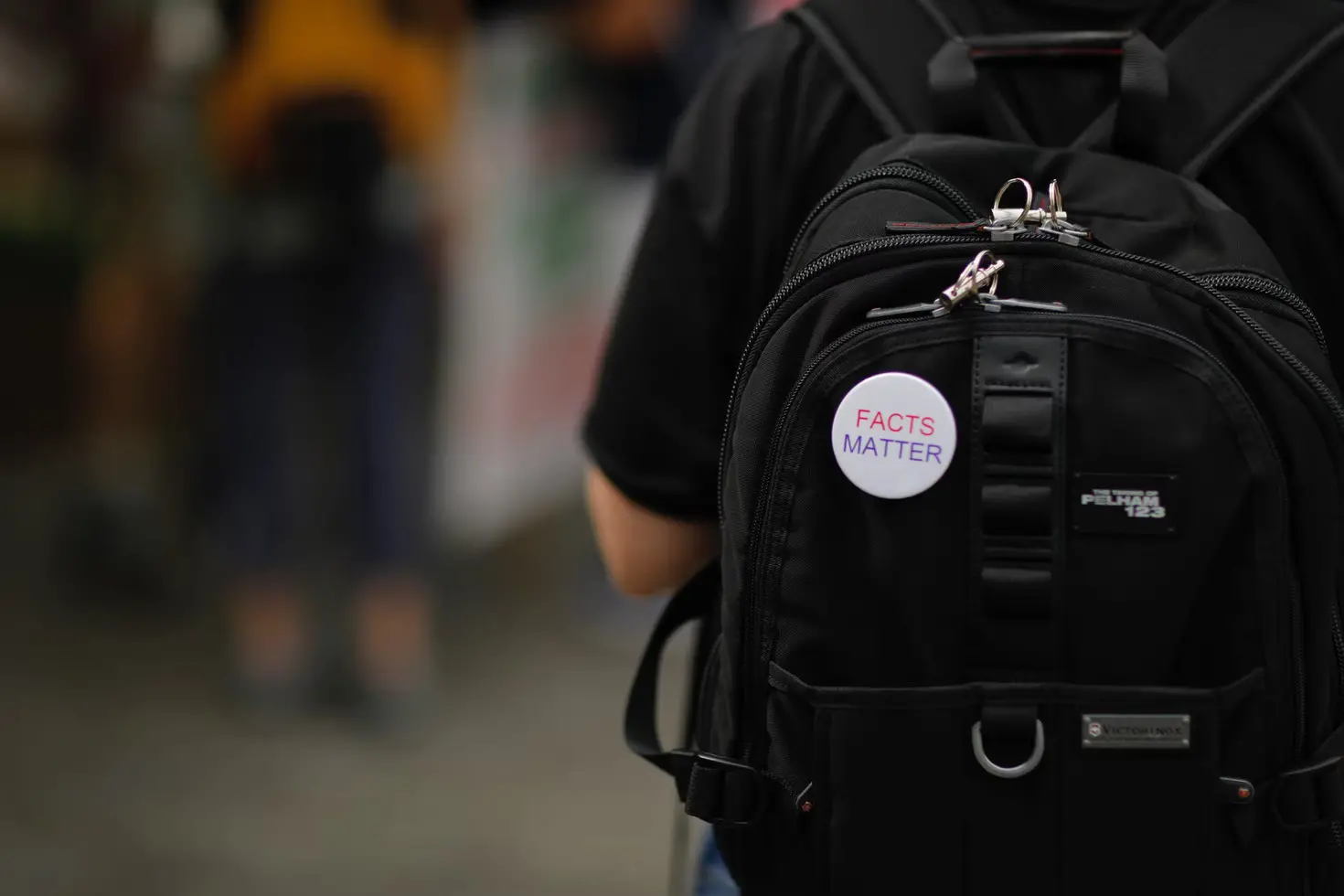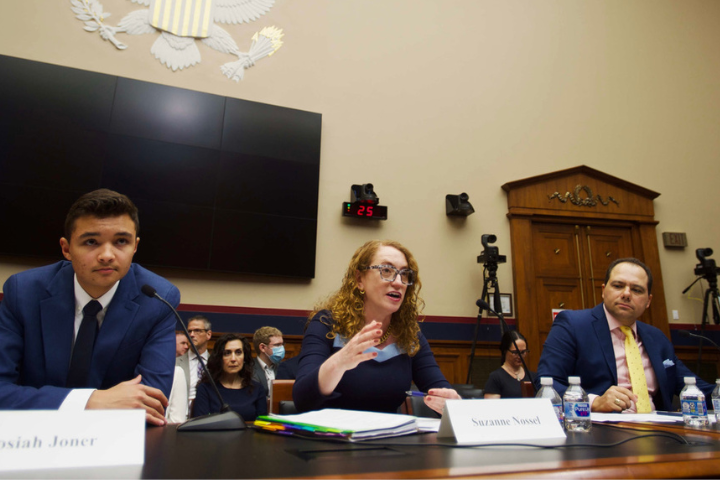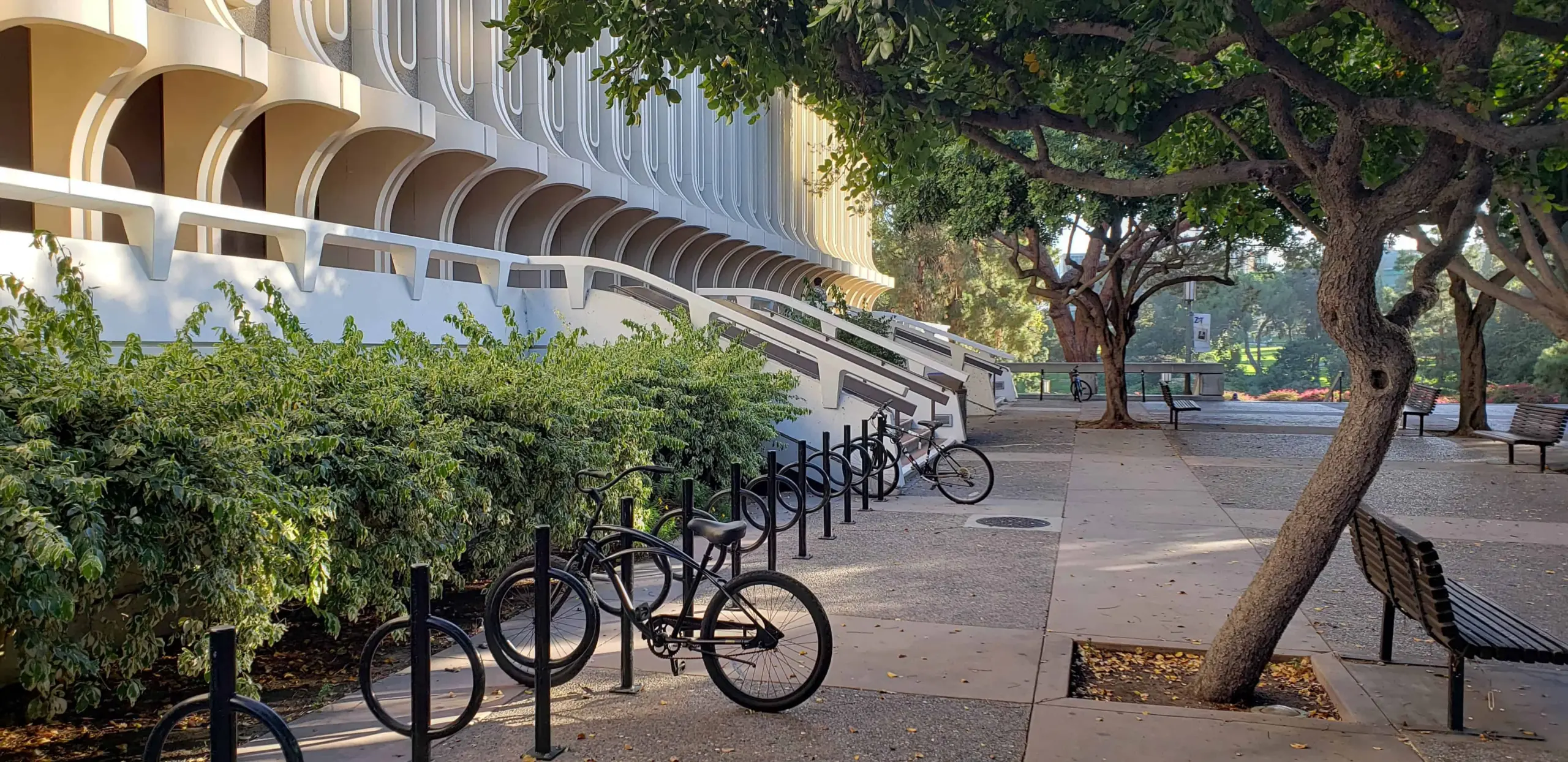Education is a key issue for Republicans all over the country in 2022. Why? In a word, Virginia.
Before 2021, Republicans had gone a dozen years without winning a statewide race in the commonwealth. But that year, with many parents angered by pandemic-related classroom closures, GOP gubernatorial candidate Glenn Youngkin made parental control over public education his top issue.
Youngkin began by attacking the record of Democratic nominee and former governor Terry McAuliffe. He reminded voters that McAuliffe once vetoed a bill that would have allowed parents to exempt their children from studying material they deemed “sexually explicit,” such as Toni Morrison’s “Beloved,” a Pulitzer Prize-winning novel with references to rape, slavery and infanticide. In the wake of Black Lives Matter protests and amid new national debates around classroom curriculum exploring race relations, Youngkin’s attacks focused on opposing instruction in critical race theory.
This strategy paid off during a televised debate when a clearly frustrated McAuliffe responded to Youngkin by saying, “I don’t think parents should be telling schools what they should teach.” Repeated in GOP attack ads and social media posts, these 10 words helped Youngkin pull an upset. Republicans won every statewide race on the November ballot and regained control of the House of Delegates. Political analysts widely regarded McAuliffe’s gaffe as the pivot point in the election, with conservative commentator Joe Concha awarding it “a top listing in the Hall of Fame of Political Blunders.”
But Youngkin’s victory, which has influenced Republican governors across the country, was hardly the first time a politician invoked the innocuous-sounding issue of parental control over public education to advance an agenda. The same claims framed William Jennings Bryan’s crusade against the teaching of evolution in schools in the 1920s. Bryan’s campaign exposes how claims of parental rights are often a cloak for deeper concerns.
Public schools have always been about more than academics. During the mid-1800s, for example, Horace Mann promoted the common school movement as a means to integrate non-English immigrant children into mainstream American culture.
As Irish Catholics gained political power in Boston during the late 1800s, they demanded a more positive presentation of their history in public schools. In fact, battles over textbooks helped Irish American Democrats win school-board elections. The Republican-dominated Massachusetts legislature responded by letting women vote in school-board elections (only) — but solely literate ones who owned property or paid taxes. These qualifications meant more old-line Protestant mothers would gain the vote, enabling them to curb the influence of these newly mobilized Catholic parents.
By the 1920s, Protestant fundamentalists (as they then called themselves) began flexing their political power with prohibition, immigration restrictions and the defense of religion in public life. Bryan, a populist political orator, cloaked his nationwide crusade to ban the teaching of human evolution in public schools with a benign appeal to parental rights, leading Tennessee to become the first state to pass such a law in 1925. This led to the headline grabbing trial of John Scopes for violating it.
The anti-evolution crusade erupted at a time of extreme social unrest. Industrialization, urbanization, immigration and secularization had changed the face of America. Wars, riots and revolutions rocked the country and the world. In 1920, Republicans won the presidency with a call for “a return to normalcy” and retained it in 1924 after enacting draconian immigration legislation that was highly restrictive and discriminatory.
A former three-time Democratic presidential nominee with fundamentalist Christian convictions, Bryan blamed these social problems on social Darwinist “struggle-for-survival” thinking. Such an outlook justified cutthroat competition and carried no compassion for the downtrodden, he maintained — painting even World War I as a result of Germany’s embrace of social Darwinism.
Bryan’s sincere social objections to teaching Darwinism arose from his religious faith that humans were made in God’s image. Seeing humans instead as evolved from lower animals through a survival-of-the-fittest process had antisocial consequences, Bryan believed. As he put it, teach children that they descended from monkeys and they will act like apes.
Rather than principally invoking the Bible, however, Bryan followed a tested political script by appealing to parental control rather than religious bias in his anti-evolution crusade and carried it over to his defense of the Tennessee statute in the ensuing Scopes trial. “If it is contended that an instructor has a right to teach anything he likes,” Bryan argued, “I reply that the parents who pay the salary have a right to decide what shall be taught.”
As he presented it, public schools were promoting a divisive social viewpoint by teaching Darwinism and parents had a right to object. “The real issue is who should control the education system,” Bryan said on the eve of trial. “The hand that writes the pay-check rules the school.”
At trial, Bryan focused his case on parental control while the defense countered by shaming the statute as anti-science and purely religious. Bryan’s strategy worked. The jury convicted Scopes and the state supreme court upheld the Tennessee statute. Other Southern states such as Mississippi and Arkansas and many school districts in the South, Midwest and West followed suit, and the theory of human evolution virtually disappeared from mass-marketed high school biology textbooks used throughout the nation until the 1960s.
Today, politicians have resurrected this strategy to similarly cloak objections to teaching sensitive matters, including climate change, gender roles, and topics surrounding racism and its history — lumped under a banner of critical race theory. With his first executive order issued on the day he took office, Youngkin sought to eliminate critical race theory and other “inherently divisive issues” from Virginia public schools — complete with a tip line for parents to report violations. In an echo of its 1925 anti-evolution law, the Tennessee legislature recently banned any instruction that makes students feel distress or guilt due to their race. Florida also enacted a new statute barring teaching about sexual orientation through third grade. Dubbed by critics as the “Don’t Say Gay Law,” the statute officially carries a Bryanesque title, the “Parental Rights in Education Act.”
America faces challenges like it did during the Scopes era. Economic dislocations, cultural upheavals and immigration concerns divide Americans and polarize politics. Many seek a return to what we call “normalcy,” a term first applied to politics by Scopes-era politicians. Now as then, that particularly applies to education.
Parental control has always tempered academic freedom in American public schools, with the outcome of any resulting dispute often turning on which parents protest the loudest or which politicians garner the most votes. Dismissing parental concerns over education is a poor political strategy. Instead, proponents of public education would benefit from looking beneath the surface to see what is driving parents’ purported concerns. Is it religion? Is it race? Or is it fairness and balance? These are the real issues at stake, not parental control.






